What beauty lies in death?
After a turbulent season of Part the Mistveil’s very strong heroes, we are going to revisit one of the players’ most beloved regions and which greatly influenced the game due to its iconic heroes: Aria.
Today, we're going to review the new set, Rosetta, which promises to bring long-awaited support to some classes, and how it impacts the game.
What is Rosetta
Rosetta is a draftable set (which means it’s possible to play sealed and draft with) that will bring four new heroes: two Wizards and two Runeblades. The set also brings back the Earth and Lightning elements (no Ice this time) and new mechanics for all elements.
The set is also dedicated to having all heroes focused on arcane damage, but without Arcane Barrier, which brings unique mechanics to limited formats and avoids unintentional draws in matches.
Let's explore the new mechanics that we’ll see in the heroes and how they’ll use them.
Mechanics
Decompose
Decompose is an additional cost where you must banish two Earth cards and one Action from your graveyard and, if you do so, you will receive a bonus.
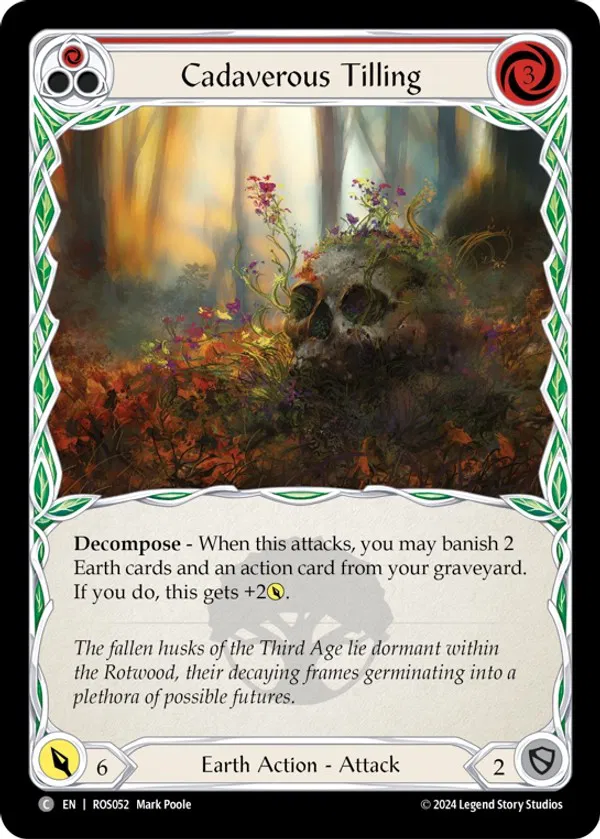
For example: Cadaverous Tilling (1) costs three resources and has six power, but if you Decompose, it will gain two extra power. Rootbound Carapace (1) is a defense reaction that blocks three, but with Decompose, it will block four.
The Earth talent has several cards with Decompose, but why should we want to banish our cards?
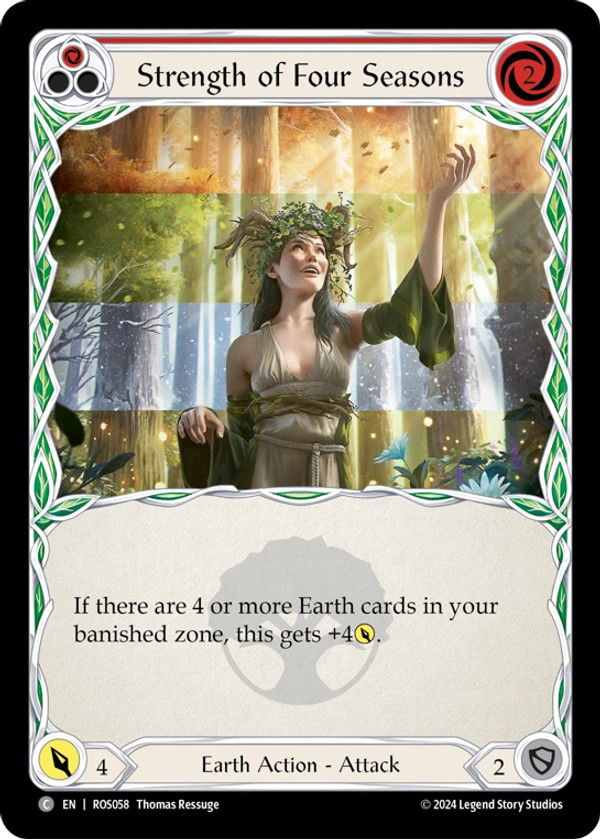
Some cards also have bonuses if you have four or more Earth cards in your banish zone - not only it activates your Earth heroes' abilities, some attacks like Strength of Four Seasons (1) and Fertile Ground (1) are enhanced by this condition, so it is important for the two heroes with this talent in this set to balance between Decompose cards and cards that benefit when you fill your banish zone.
Note that Decompose is optional - you can play a card normally without meeting the Decompose requirements, it just won't have the bonus effect.
Amp
Amp is not a new mechanic, but until now we only had one Instant with it and Rosetta brings extensive support to the mechanic.
Predominant in the Wizard class, “Amp X” means that your next arcane damage will deal its amount +X. Note that this doesn’t mean only damage from Actions with arcane damage, but from any source (such as a hero's ability or weapon).
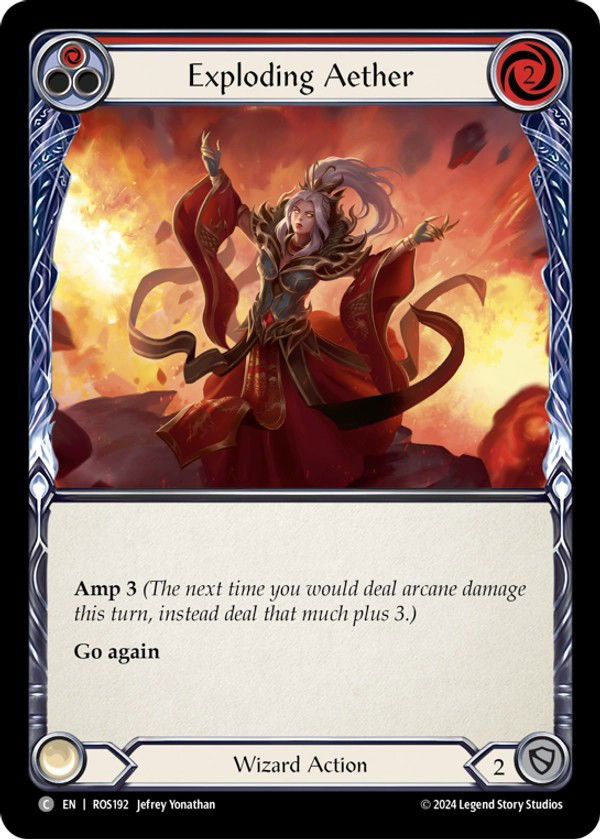
For example: Exploding Aether (1) has Amp 3, meaning your next source of arcane damage will increase by three. If you then play Perennial Aetherbloom (1) it will deal 6 arcane damage. This mechanic is very strong, since preventing arcane damage is much more difficult than stopping physical damage.
Surge
Surge is an exclusive Wizard class mechanic, and also not new, but it is important to explain due to its relevance in the set.
“Surge” is a bonus effect that occurs when an arcane damage card deals a greater amount of damage than it is set to do. Let's look at an example to make it clearer:
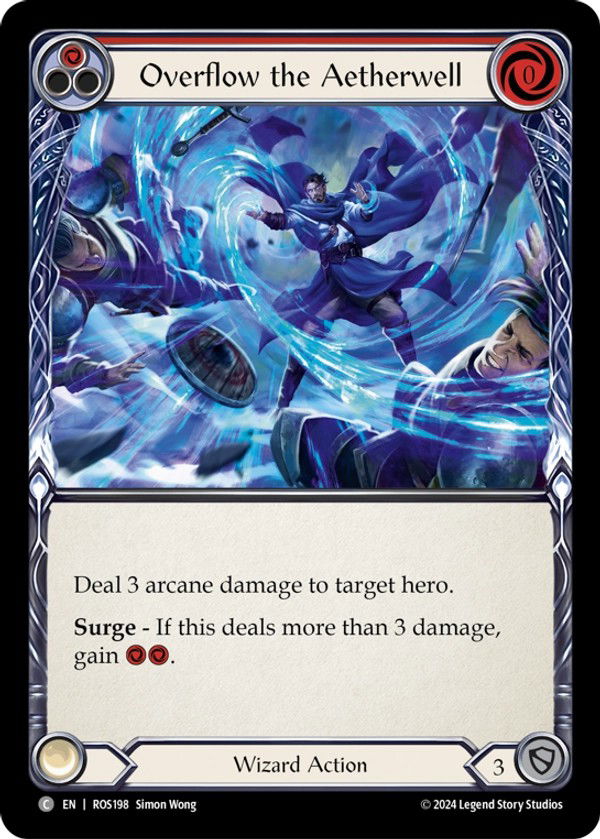
Overflow the Aetherwell (1) threatens three arcane damage, but if it deals four or more (synergizes nicely with the Amp mechanic), you will gain two resources. Actions with Surge are much better used when their damage increases and some Surges have very strong effects depending on the hero.
Meld
For the Magic: the Gathering players, this “two in one” mechanic is nothing new - but here at FaB it is the first time we see cards like this.
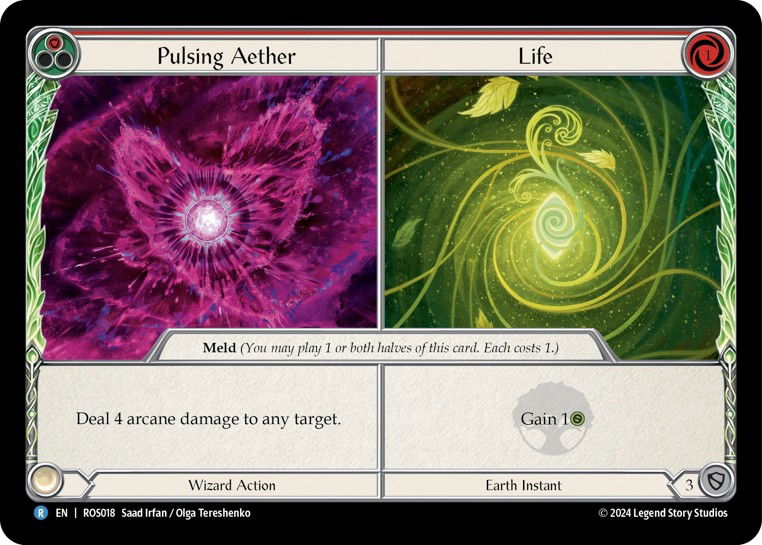
A card with Meld has two sides: For example, in Pulsing Aether // Life (1) one side gives 4 arcane damage, while the other gives you one life. When you play this card, there are three options: play just Pulsing Aether, play just Life or do both, but you must pay their cost combined. In our example, you must pay two resources to do both Pulsing Aether and Life (since each costs one).
A few notes: your hero must have the class and talent of the Meld card as a whole. In the case of Pulsing Aether // Life (1), your hero must be a Wizard and be Earth. Furthermore, you must respect the time of each of the halves (You cannot do Pulsing Aether as an instant, for example) and when you decide to do both sides, first resolve the left side and then the right side.
If you want to better understand how Meld works, I recommend reading this LSS article explaining the mechanic in detail.
Macro
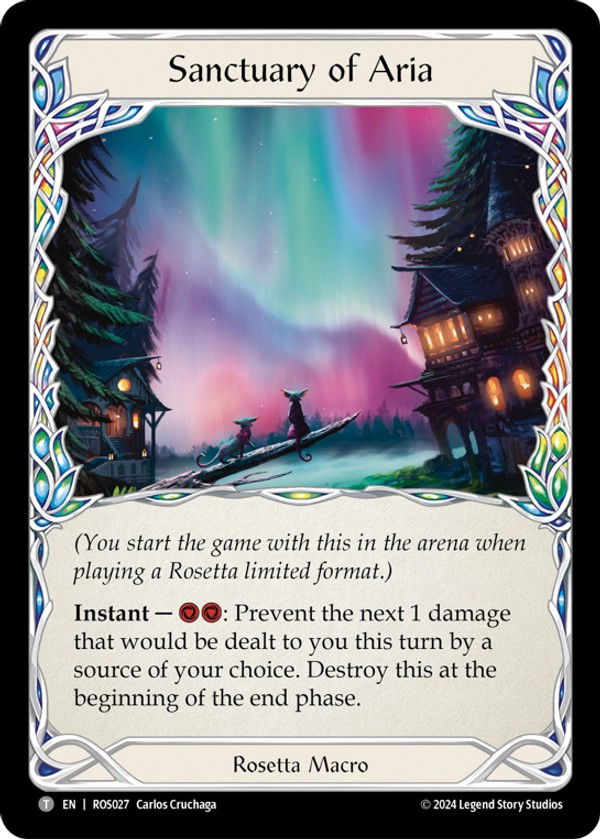
Macro is a new mechanic only valid in non-constructed formats (Sealed, Draft and Precons), making its debut in this set through Sanctuary of Aria.
There's not much to tell: in every match in these non-constructed formats, both players will start with the Macro from the set on the field and will be able to use its ability normally during the game. Macros are not enchantments, items or anything like that, so the opponent cannot interact with it. It also does not count as a card in your deck or inventory and, when it is destroyed, it ceases to exist (that is, it does not go to the banish zone or graveyard).
Earth Heroes
Let's start by talking about heroes with Earth talent. Both are aimed at slower games and seek to win the game after having their abilities activated and extract more value from their cards from the mid-end of the game.
Florian
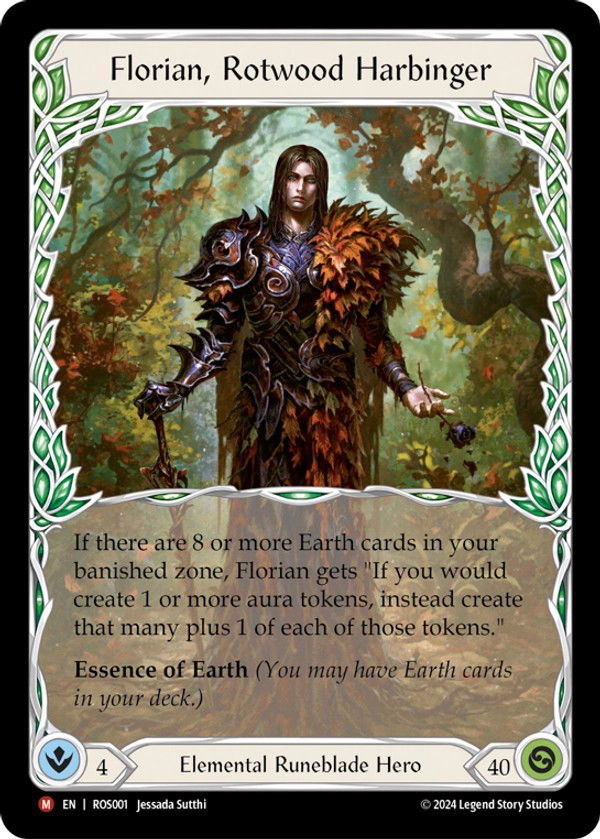
Florian, Rotwood Harbinger is a runeblade that has a kind of built-in Mortred Tide (1), but at the early stages of the game is a vanilla hero.
The first thing Florian should worry about is “activating” his ability. To achieve this, several cards with Decompose are needed. Furthermore, it is important to stay alive until then, so Defense Reactions and life gains help keep the hero healthy.
Once active, Florian can abuse two important tokens in the set: Embodiment of Earth and Runechant, but Runechant will certainly be his main victory condition.
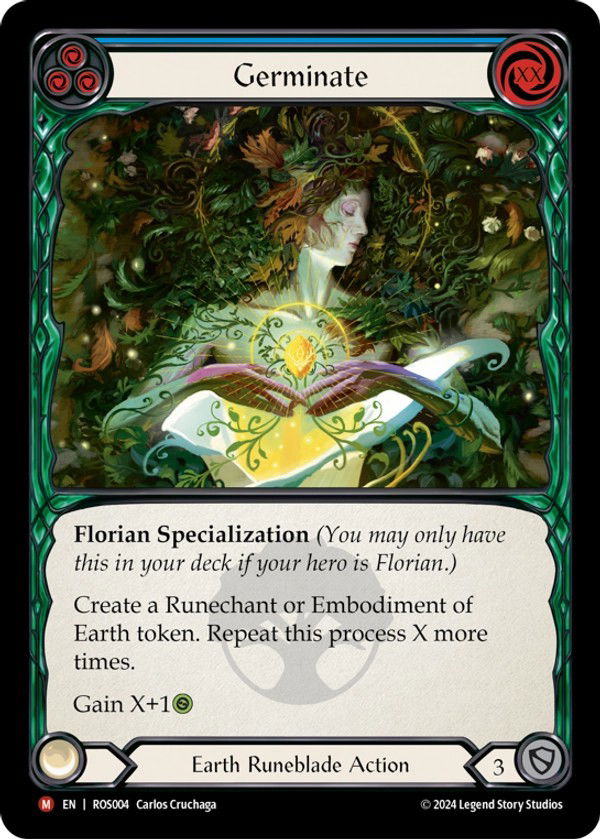
Arcane Seeds // Life (1), Malefic Incantation (1) and Arcane Cussing (1) are excellent cards for the Runeblade to scale with its ability. In constructed formats, his Germinate (3) specialization allows for an overwhelming endgame.
Therefore, use Florian defensively at the early game and, at the end, create so many Runechant that the opponent will struggle to deal with all the physical and arcane damage simultaneously.
Verdance
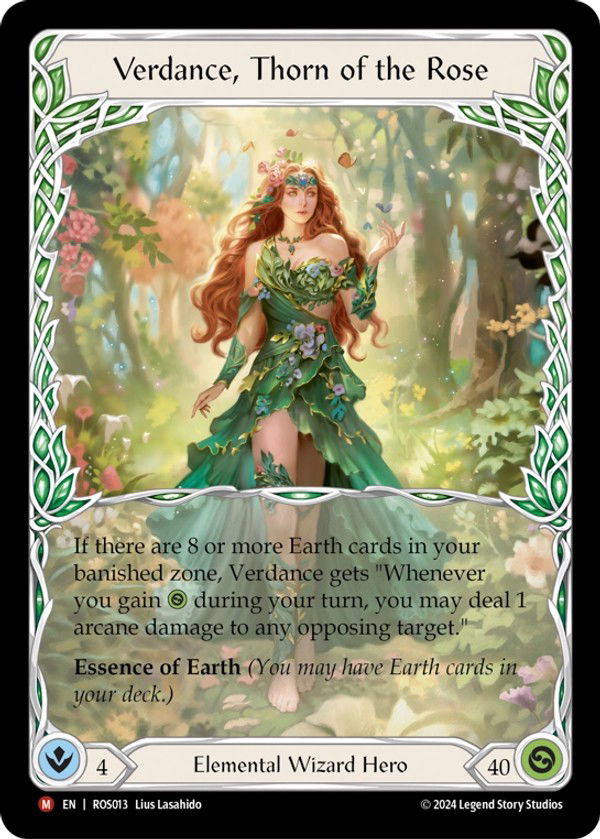
Like Florian, Verdance, Thorn of the Rose is also very weak at the beginning and needs to balance Earth and Decompose cards, but once active, it transforms its life gain into arcane damage.
Your focus on life gain is very clear. Cards like Blossoming Decay (1), Harvest Season (1) and Fertile Ground (1) help the Wizard stay alive in the early game, and for the mid-end game it uses these cards to drain life from the opponent.
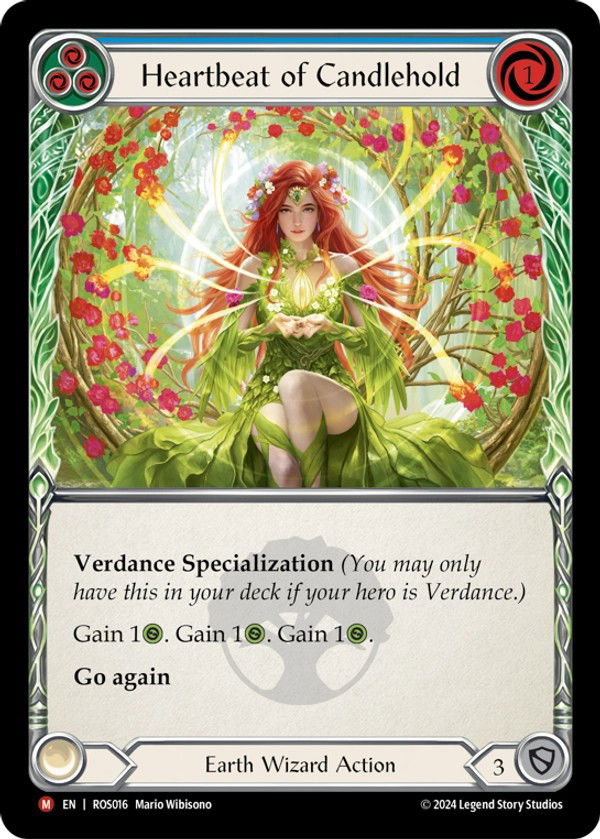
In Constructed, Rampant Growth // Life (2) is a great finisher with so many life gain cards along with the Heartbeat of Candlehold (3) specialization - which triggers Verdance's ability for every instance of life gain.
With Verdance, try to survive in the early game with life gain and end your game by transforming this life gain into a damage threat on the opponent.
The Lightning Heroes
As a somewhat mirror to the Earth heroes, the Lightning heroes seek to be faster and more explosive with a much higher attack ratio, the goal is to avoid blocking and be much more aggressive.
Aurora
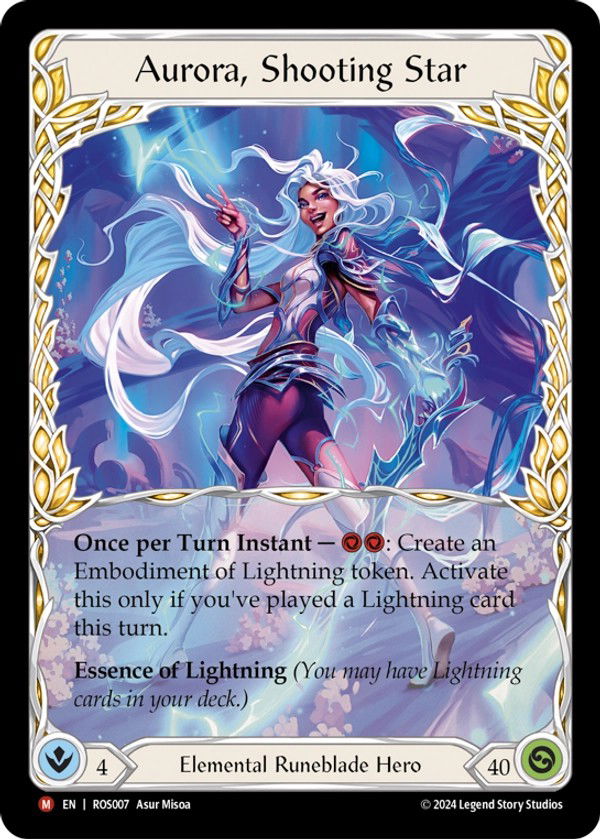
Aurora, Shooting Star is a Runeblade that abuses its Lightning talent to create long combat chains along with arcane damage through Runechant.
Not only its ability that creates an Embodiment of Lightning that sets up for the next turn, cards like Flittering Charge (1), Fry (1) and Second Strike (1) help you make a lot of attacks without needing it on the field.
Also your attacks will force tough decisions. Burn Up // Shock (1) and Lighting Form (1) can tax the opponent's cards, preventing very explosive turns from the Runeblades.
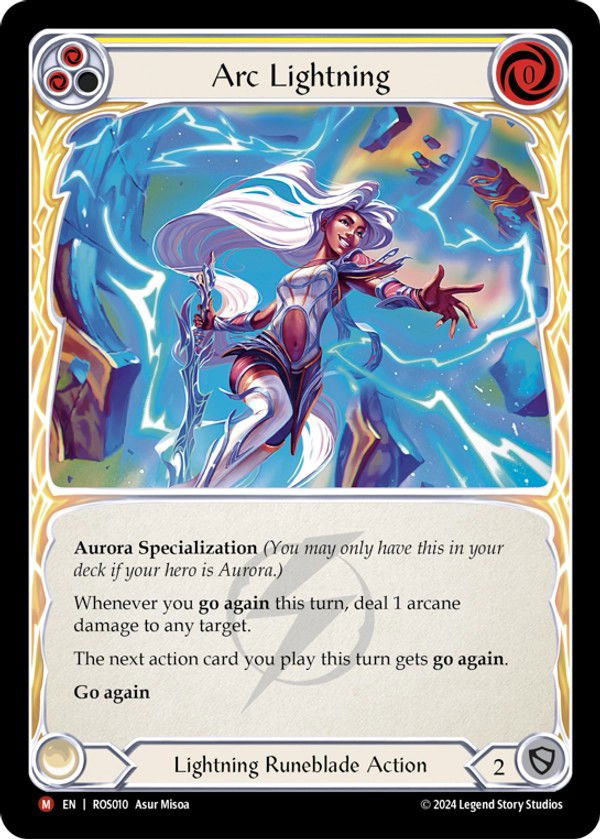
Although several attacks do not have natural go again, Aurora makes up for this in several ways. Its specialization Arc Lightning (2) does everything a Runeblade wants: threatens arcane damage and even grants go again for the next attack.
There are no secrets with Aurora. Be aggressive and fast as lightning using both your physical and arcane damage.
Oscilio
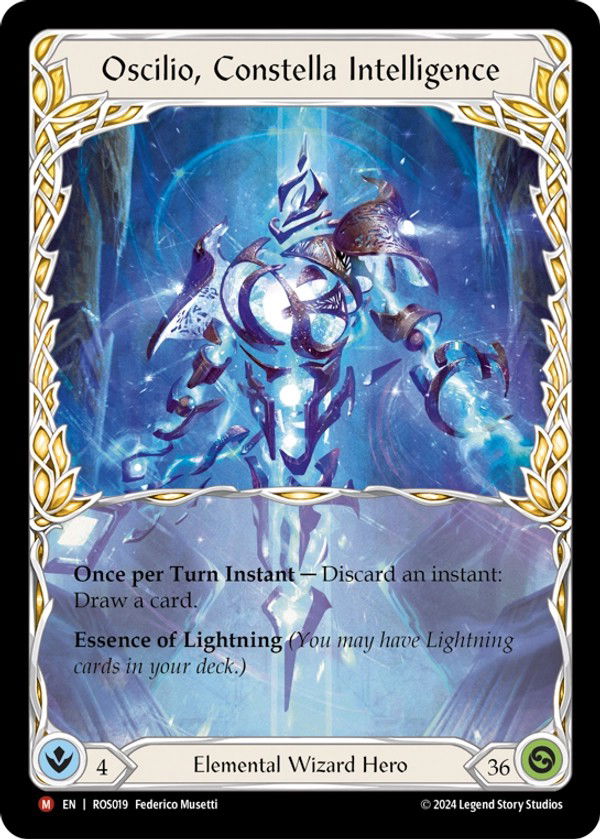
This Wizard is the most peculiar hero in the set. With less life and a simple ability, Oscilio, Constella Intelligence aims to make hyper-explosive turns using his weapon Volzar, the Lightning Rod and deal absurd arcane damage.
With several attacks such as Eclectic Magnetism (1), Blast to Oblivion (1) and Fry (1), the Wizard can increase his Lightning card count in the turn and greatly increase the weapon’s damage.
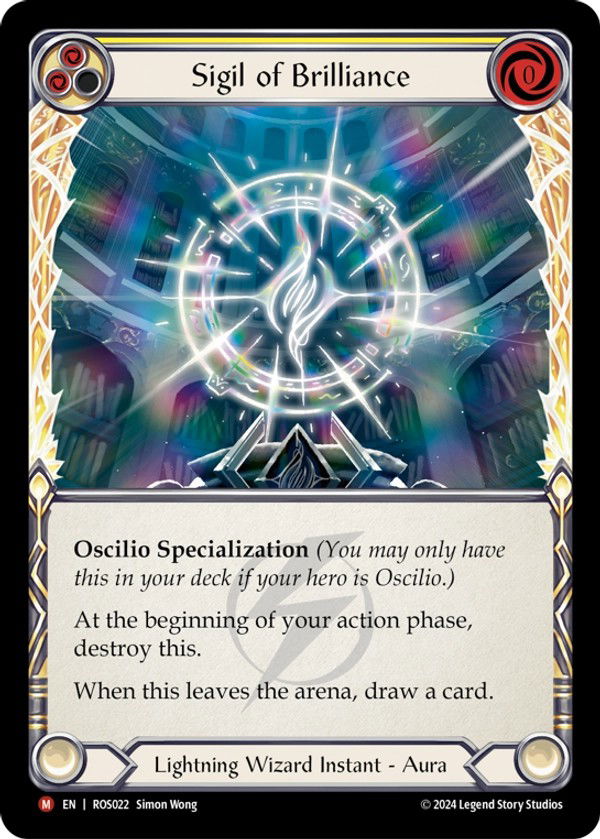
Also, his Sigil mechanics like his specialization Sigil of Brilliance (2) reduce the cost to use the weapon and allow him to be extra-tricky. All of your Sigils are Instant, allowing you to activate your ability to fix weird hands, even ones that would not present any damage.
Oscilio is the most complex hero in the set and his deck requires special attention to balance Lightning cards with damage and Instants.
Honorable mentions
In addition to the new heroes, the set also features a range of generic cards and others for specific heroes outside the set.
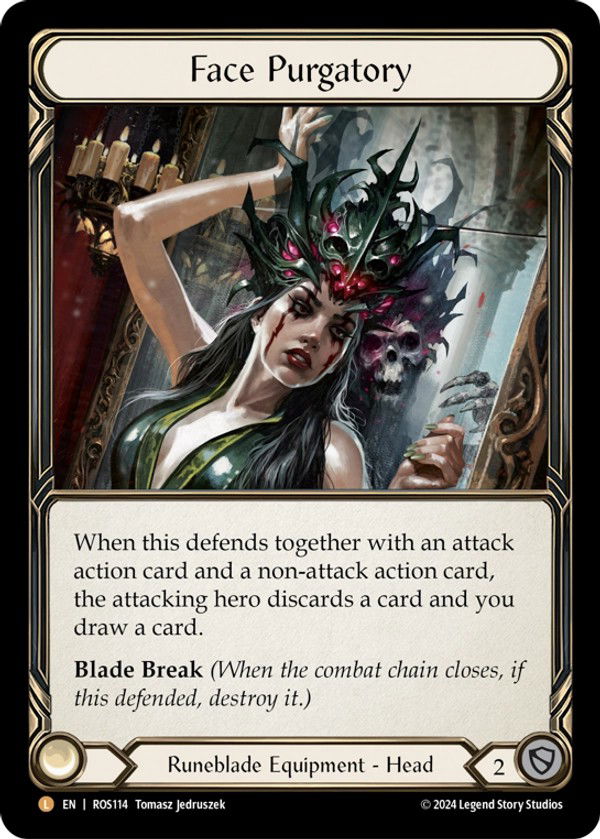
Face Purgatory is the Head equipment that every Runeblade has craved. Not only it allows you to fix your hand, it also disrupts your opponent - denying them a more aggressive turn or even an arsenal.
The Runeblades in the set will use it, but others like Viserai, Rune Blood and Vynnset, Iron Maiden will also use it. This equipment is one of the best cards in the set.
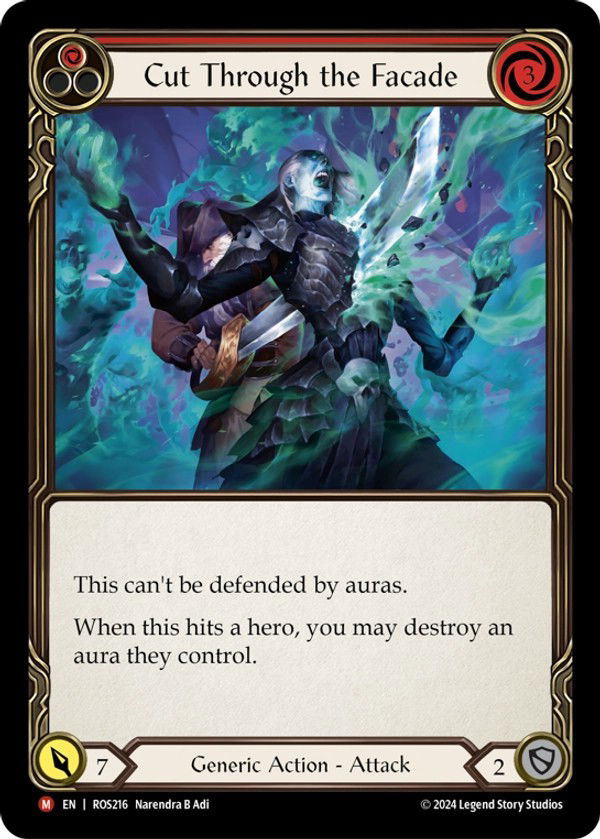
Cut Through the Facade (1) answers a meta where Enigma, Ledger of Ancestry and Prism, Awakener of Sol may be relevant. Not only does the attack stop auras from blocking it, it also destroys very annoying auras, like those with Spectra's ability used by Prism.
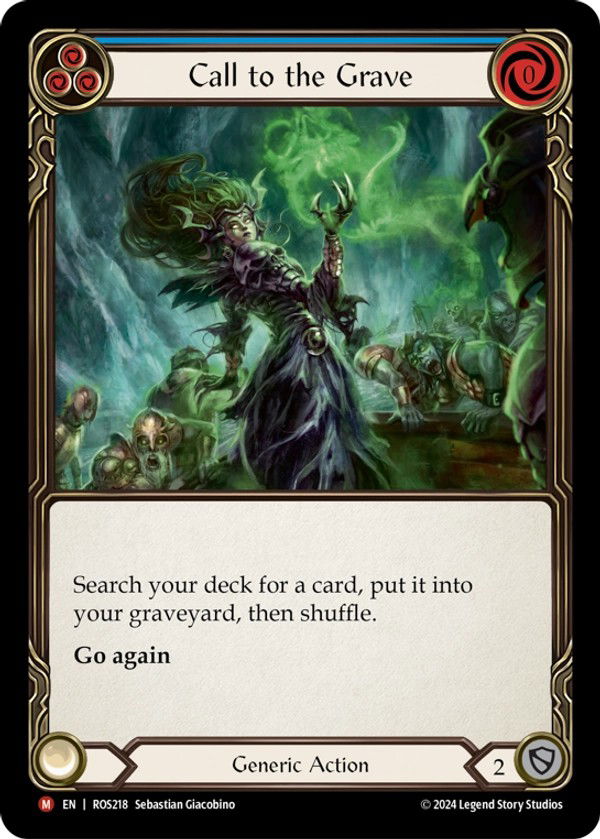
Call to the Grave (3) is a different tutor that puts the sought-after card in the graveyard, but this has some use in decks that use this zone - especially Levia, Shadowborn Abomination. Not only does the Brute feed her graveyard for cards that require banishing cards, but she also wants to put some specific ones in the graveyard, like Beast Within (2).
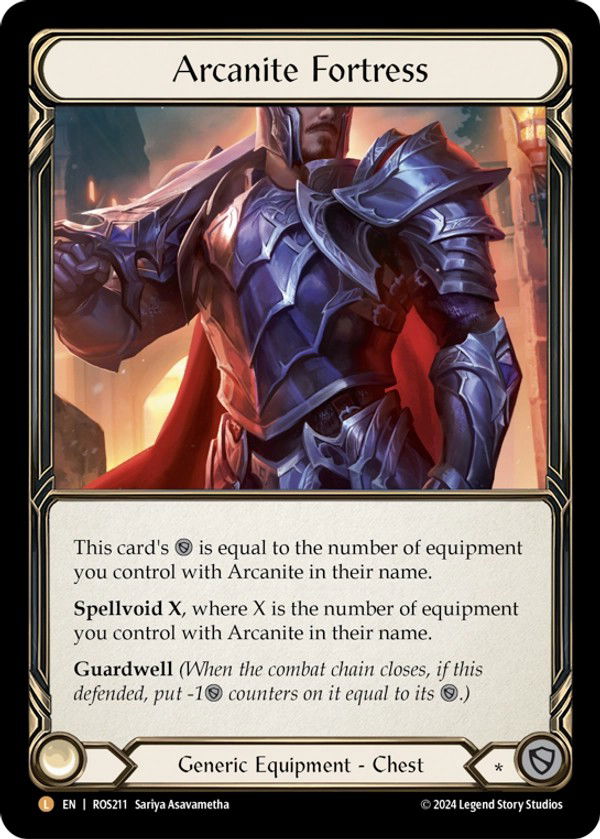
Arcanite Fortress is an interesting generic tool for use in classes with little equipment defense or arcane damage protection.
Furthermore, it makes Arcanite Skullcap once again relevant as equipment and an option to be considered - since the helmet had lost its usefulness with the release of Crown of Providence and Balance of Justice.
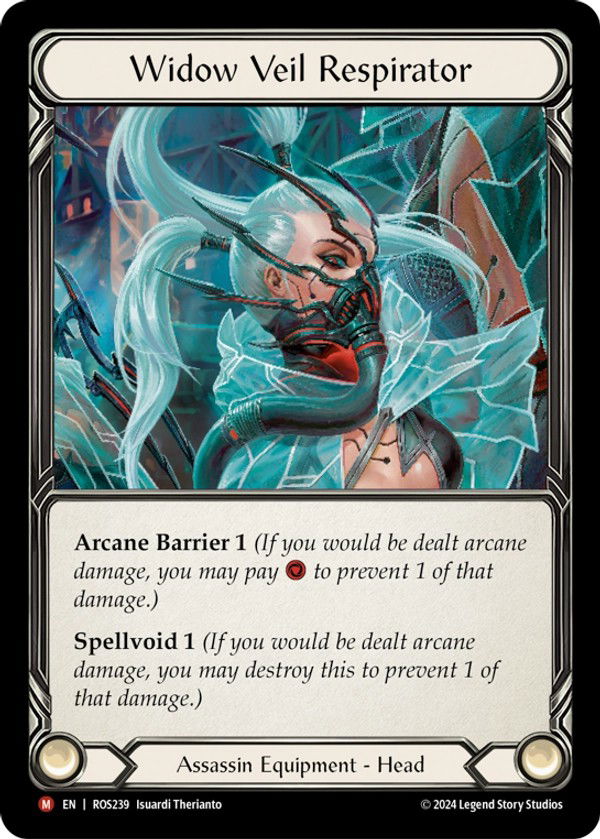
In the expansion slot, several classes gained a set of equipment with Arcane Barrier such as Assassin, Illusionist and Mechanologist. There are also more specific cards to support certain heroes such as Riptide, Luker of the Deep, Betsy, Skin of the Game and Rhinar, Reckless Rampage.
Conclusion
With this overview of the set, let's reflect on the future of the metagame and how these new heroes can be part of it.
The return of the Runeblades

It is no longer the case to say that the Runeblade class is one of the worst in the competitive scene. The two heroes that were previously valid in Classic Constructed had some very weak turns and didn't keep up with the pace of the other heroes in the game, but Rosetta comes to change that.
Cards that generate Runechant such as Malefic Incantation (1) and Arcane Cussing (1) in conjunction with various disruptions such as Snuff Out (1), Succumb to Temptation ( 2) and the Legendary equipment Face Purgatory can make these heroes take the tempo of the game. We don't know if they will really have the tools to be competitive, but they will be much better.
In addition to these two, the new heroes are very promising. With the possibility of pivoting between midrange and fatigue and having flexibility in several of his cards, Florian benefits a lot in a much slower meta, being able to withstand damage from aggressive decks as well as preparing a combo with several Runechant. On the other hand, Aurora is very aggressive and its various cards that do small damage can end up leaving the opponent in very uncomfortable situations.
Rethinking Wizards

With the recent ban, Kano was greatly nerfed. In addition to making the pitch-stack plan much more difficult, your standard combo strategy has also been weakened - however, the new set brings you new tools and could be an excellent opportunity to rethink the hero, thus being able to go for a more tempo-based strategy in a more interactive game. Furthermore, cards like Destructive Aethertide (3) and Eternal Inferno (1) require interaction from the opponent, bringing new depth to the hero.
The new Wizards play in slightly different ways. Verdance is very reminiscent of Iyslander, Stormbind, but without the Ice and the disruption in Frostbite, however her life gain and the generation of Embodiment of Earth allow her to deal a lot of damage and still interact with the opponent through her ability and Earth cards. Also, some interactions can cause her to perform a combo that guarantees victory in a much slower game.
Oscilio is still being unraveled and is certainly one of the most complex heroes in the set. His ability essentially serves to adjust weird or poorly functional hands, however, many still question how the Wizard should play: should he focus on continuous Lightning attacks or is he better as a pure Wizard that focus on arcane damage? Time is still needed to evaluate which version will be the best.
Conclusion
Rosetta is our last standard set of the year and it ends 2024 on a high note. Although we have a few more pre-constructed decks in sight, like Dash I/O's Armory Deck and yet another Armory Deck in November, the meta seems to be returning to its state at the beginning of the year - where the attrition game is more important than always playing with four cards in your hand, and the new heroes seem to return to that idea.
Although Florian and Verdance seem the strongest, Aurora is the typical aggressive deck, with the caveat of arcane damage “pings”, and it still takes time to discover the best way to play Oscilio.
Thank you for reading and see you next time.









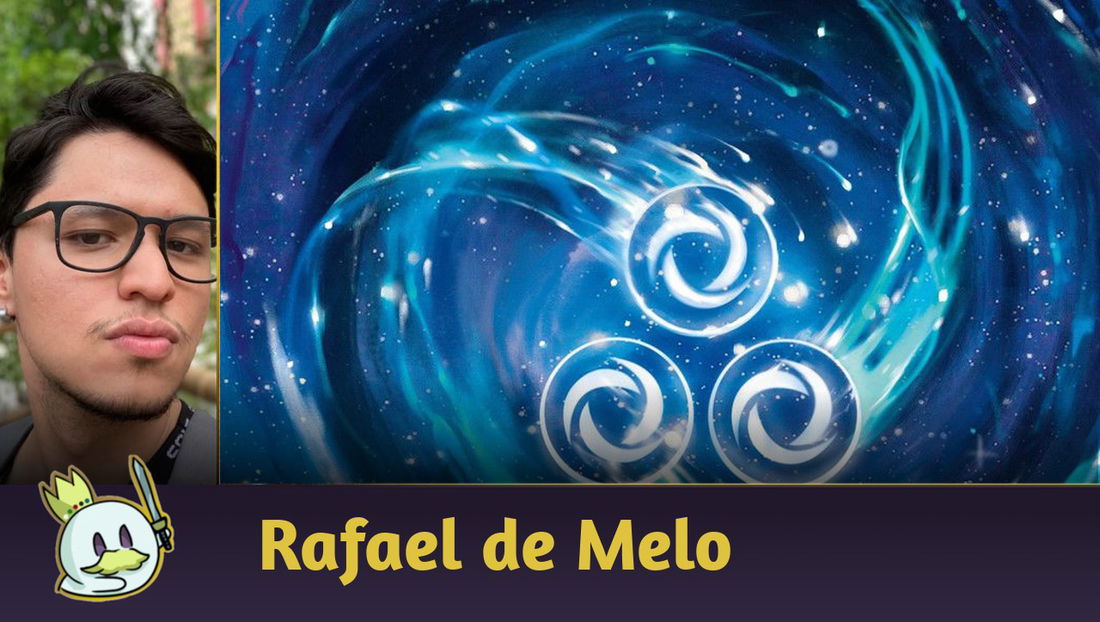
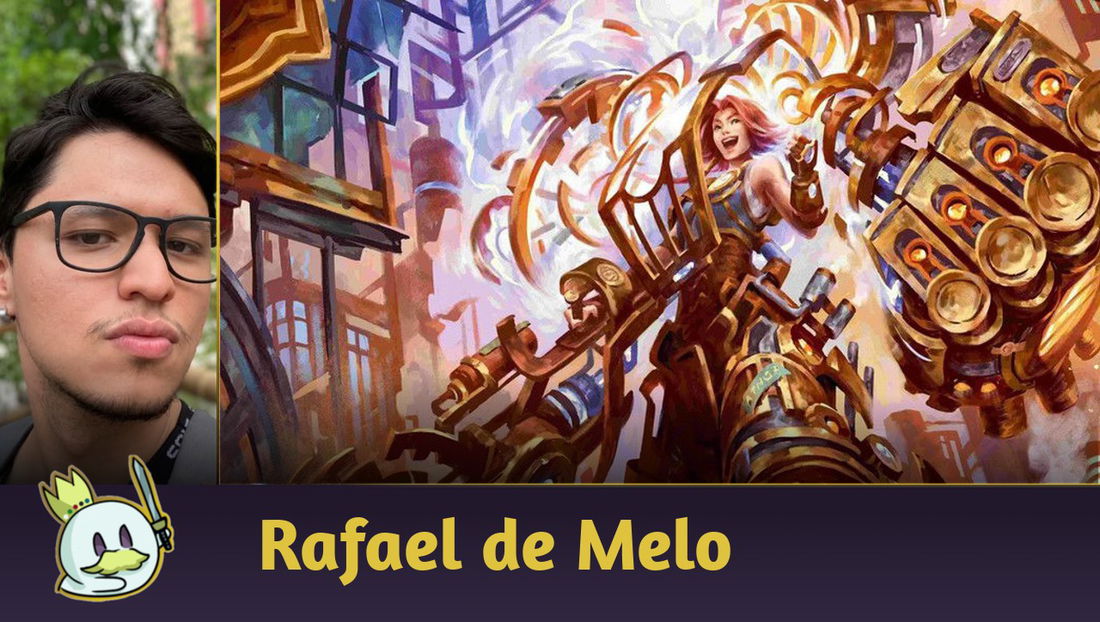



— Comentarios 0
, Reacciones 1
Se el primero en comentar